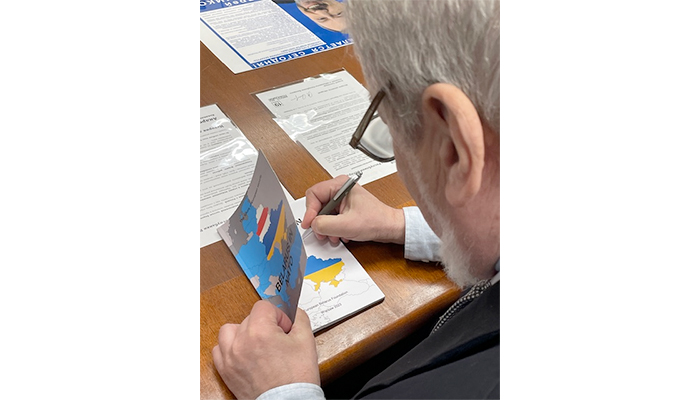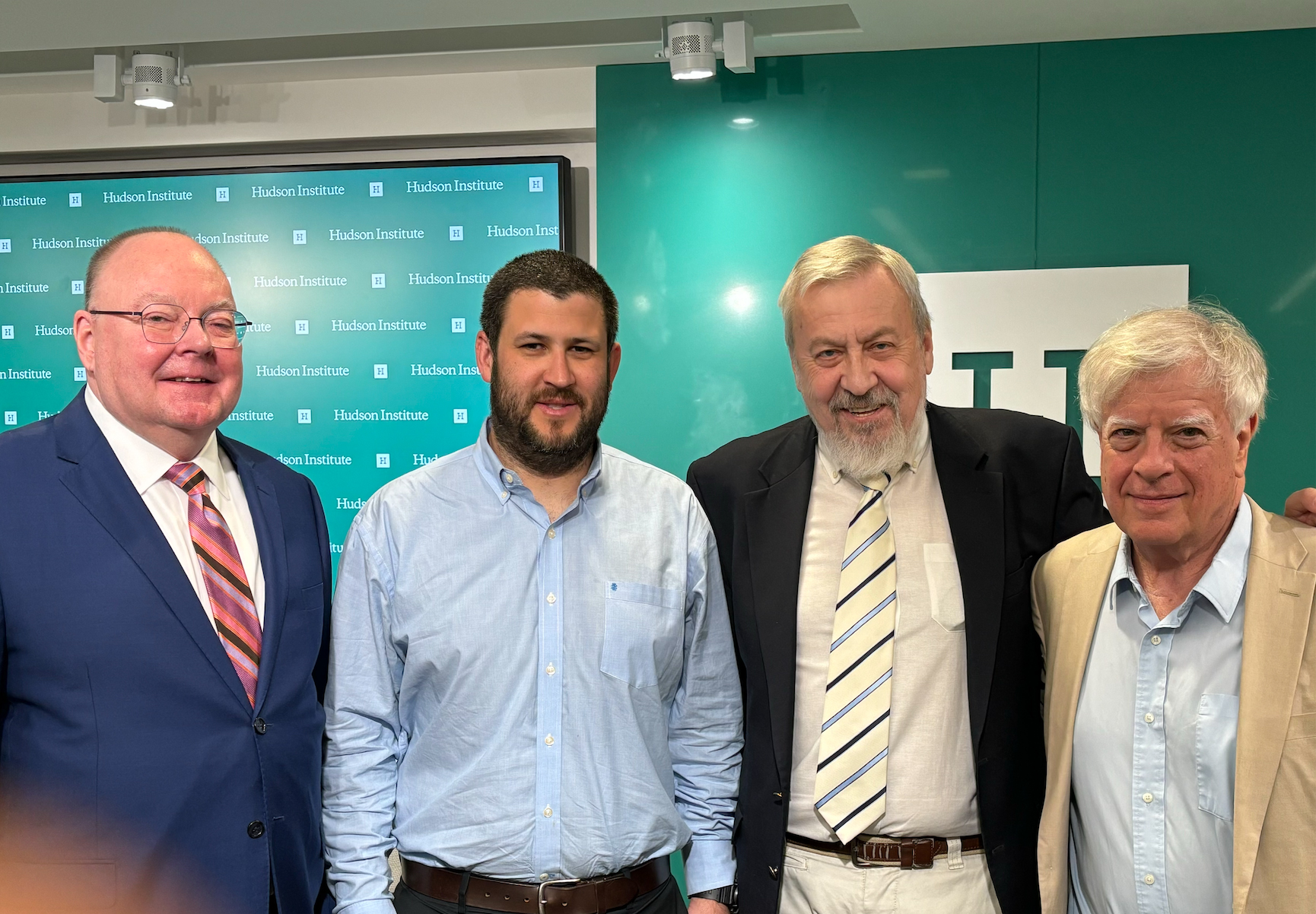Andrei Sannikov: We Need Urgent Solutions
9- 24.04.2024, 16:49
- 21,322
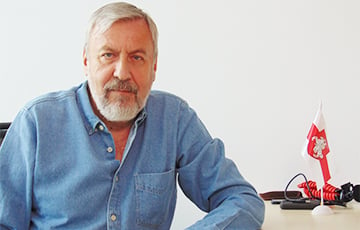
The situation in the world can change if the problem with the Lukashenka regime is eliminated.
Andrei Sannikov, the leader of the European Belarus Civil Campaign, returned from a grand trip across the United States, where he gave a series of lectures, including at the most prestigious American universities of the Ivy League.
Charter97.org asked the opposition politician about his trip:
— The publishers of my book in English [My Story: Belarusian Amerikanka or Elections Under Dictatorship - Ed.], East View Press organized this unique Belarus Tour. The trip was busy: the Midwest, then the West Coast, and at the end, the East Coast. It is enough to say that there were ten speeches and lectures in eight working days, as well as meetings and exclusive visits to two large libraries, the Library of Congress and the Hoover L&A. Speeches took place at four Ivy League universities — Stanford, Columbia University, Princeton and Harvard.
"This Kind Of Hope" movie about Belarus was on show at Harvard. There were speeches at the Hudson Institute, the Center for Strategic and International Studies (CSIS), the Global Minnesota organization, one of the largest and oldest foreign affairs councils in the United States, at Macalester College. There were closed meetings and communication with representatives of the diaspora in different states.
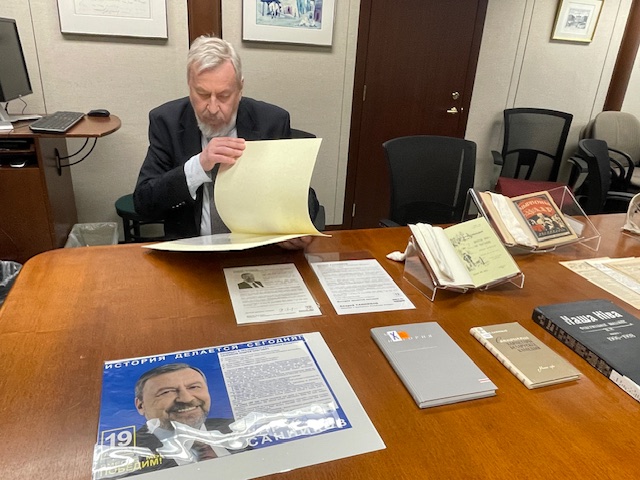
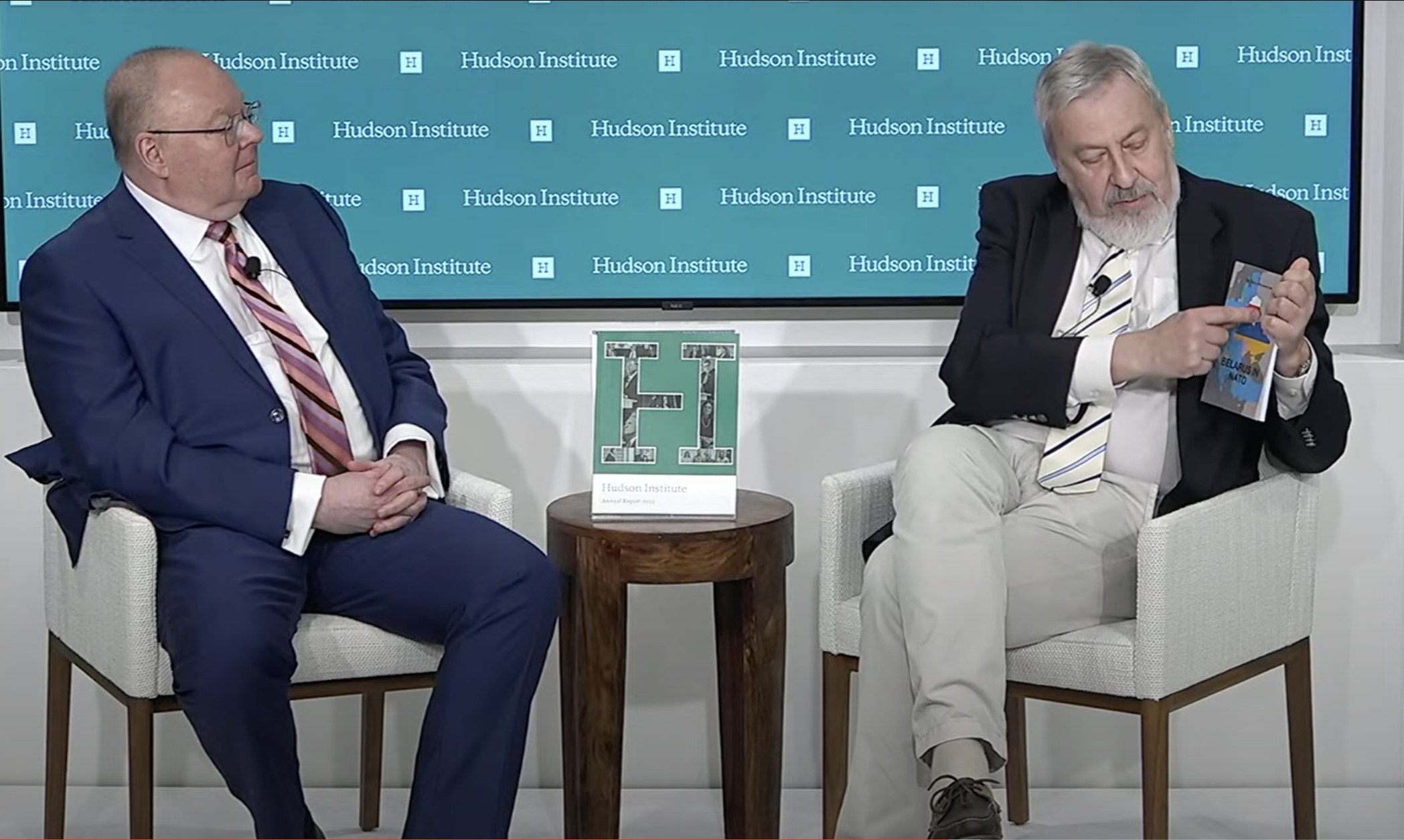
— How did the audience react? Does the United States understand the situation in Belarus and the threats posed by the Lukashenka regime?
— The audience everywhere was really excellent. You know, it is not so often that you meet such a level of interest and smartness, although not always easy questions. This is even though the United States is not quite interested in Belarus. After all, America traditionally lives on its own agenda, mainly domestic, especially in the year of the presidential election. They pay attention to us when something happens, as, for example, in 2020 or in 2010, when the US political establishment and the Congress, and the State Department, and the White House actively reacted to the events in Belarus, did a lot to release political prisoners.
Today, there is no more such attention to our problems, reasonably, so it is so important to talk about those monstrous crimes of the Lukashenka regime, about the ongoing murders of political prisoners not only with officials, but also with the public.
— You had a very wide range of topics. You also said that Belarus can become a catalyst for change in our region. So, how could this happen?
— I proposed a number of topics, which the organizers chose from the list. There were three main ones: "Authoritarianism in Belarus, Russia and the Post-Soviet space. Its Origins and Sources of Support.” The second was "International Security. The Role of Belarus". This topic is related to the disarmament processes in which I participated in the 90s. And the third one was "The Struggle for Freedom in Belarus. Its History, Participants and the Prospect of Liberation.”
I really said that Belarus is the most important point, the geographical center, which influences all the processes taking place in the region, in Europe, in the world. I was in the US during the monstrous shelling of Israel by Iran. For me, of course, there was an obvious parallel with the events in Belarus. The Free World did not provide relevant support to the Belarusians in 2020, which led to Russia's full-scale invasion of Ukraine from the territory of Belarus.
The same is true with Iran, whose people rebelled in 2022, but did not receive serious support. There were monstrous crimes against humanity, murders, and the West monitored and waited, which untied the hands of the Iranian regime, which threatened the whole world. It poses a similar threat as the Lukashenka regime: the use of nuclear weapons. We know that Lukashenka is dreaming of nuclear weapons in his hands. And the mullah regime in Iran is one step away from making its own bomb. Such things need understanding and warning.
During the speeches, I presented the book "Belarus in NATO", which was recently published. This topic aroused great interest and allowed for discussions from an unexpected perspective for Americans. I hope that the topic "Belarus as a key to European security" will be continued in the United States.
— You said that America lives its own agenda. How, then, to promote Belarus on such platforms? What hooks Americans?
— Their security and well-being, the theme of Russia is also interesting. Russia is mentioned in the news because of the war, but Belarus, as an accomplice, is hardly mentioned. It must be said that not only Russia is a direct aggressor, but there are also accomplices, including Belarus.
In many places, especially where political issues were discussed, I also acted as a representative of the Governing Council of the World Liberty Congress, since I was elected last November. The World Liberty Congress includes more than 300 representatives from 60 countries with authoritarian regimes. We are discussing the issues of solidarity, cohesion of freedom fighters, and trying to find effective tools for fighting dictatorships on the part of the West, human rights defenders, and international organizations.
The failures of the West are obvious, they are recorded in the annual Freedom House report on the state of democracy in the world, which notes how rapidly democracy is "shrinking" in the world. We need urgent solutions.
The Lukashenka regime is one of the problems that can seriously affect the situation in Europe and in the world.
— You had speeches at the Hudson Institute, which is considered a conservative platform, and at more liberal platforms.
Before the US election, there were many fears that if Donald Trump wins, America will switch to a policy of isolationism and they will care less about what is happening in Europe. Have you been able to feel the mood of Republicans and Democrats? What will America be like after the election?
— I was not so interested in the mood, because the elections are an internal affair of the United States. Although, of course, it will influence international politics. But I was more interested in conveying the importance of the situation in Belarus to both liberals and conservatives.
The Hudson Institute, by the way, had one of the best meetings, as it was attended not only by employees and analysts of the institute, but also by journalists and representatives of the Democratic Party. It was a meaningful meeting: the speech, the questions and the discussion. I wanted to show the importance of Belarus during the pre-election period in the United States.

— Did you meet the representatives of the Belarusian diaspora?
— These meetings left the strongest impressions. During my trips to the United States, I always envied the Polish or Baltic diasporas, who had and have had a great influence on US policy towards their countries. These same diasporas largely determined the American position towards Belarus.
In general, they respected the line of opposition to authoritarianism in the post-Soviet space, but they did not always take into account the interests of Belarusians, and certainly did not consider our interests above their own.
We need our own voice in such important countries as the United States, and in Europe too. We have no voice yet, but on this trip I met and had the pleasure of talking with real leaders of Belarusians in the United States, and they have interesting and bright ideas.
Most of all, I was pleased with their conviction that even if they were going to live in the United States, they needed a free Belarus for this life. And they will fight for it.
